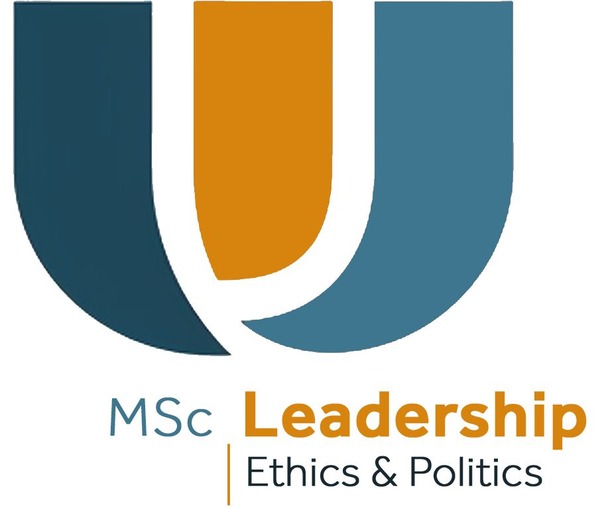Course : Leading Patchwork Societies: Social Inclusion, Integration, and Rights
Course code : PHILOSOPHY1057
LEPC9 - Ευάγγελος Πρωτοπαπαδάκης
Course Description

-
Course Syllabus
I. Introduction
II. The concept of leadership in multicultural societies
III. Social inclusion - integration
IV. Social cohesion
V. The role of leaders
VI. Religious dimension of the issue
VII. Inequalities in education: Tools and strategies for social inclusion in schools
VIII. Workspaces without exclusions
IX. Addressing prejudice and depolarization
X. Social norms as a vehicle for changing stereotypical perceptionsCourse Objectives/Goals
• Understanding the concept of leadership in multicultural societies
• Understanding the issues surrounding social, cultural, and economic diversity
• Understanding the lack of consensus regarding the exact meaning of the term "right," while simultaneously being able to explain certain fundamental, commonly accepted elements of this definition
• Knowledge of the most basic categories of rights, as they will have been systematized in the course, and, most importantly, the ability to provide examples for each of them
• Adequate grasp of the inter-subjective nature of rights and the contribution of our fellow humans to their exercise
• Differentiation between cases where the bearer of the right depends on the actions or omissions of a third party
• Explanation of the significance of distinguishing between individual and collective rights in relation to climate change, as well as in other contexts
• Familiarity with the basic concepts and theoretical frameworks related to social inclusion, integration, and rights.
• Understanding the challenges and factors influencing social inclusion and integration in society
• Ability to evaluate policies and practices aimed at promoting social inclusion and integration
• Skills in analyzing and solving problems related to social inequality, exclusion, and the promotion of rights
• Ability to develop and implement policies and programs that promote social inclusion and integration in various fields
• Sensitization to multicultural societies, cultural diversity, and the importance of cultural interaction.Instructional Methods
This course employs a dynamic blend of instructional methods to ensure a comprehensive learning experience. With a focus on engagement and flexibility, the instructional approach comprises 75% face-to-face teaching, fostering direct interaction between instructors and students in a traditional classroom setting. Additionally, 25% of the course involves distant teaching, which can be delivered either synchronously or asynchronously. This remote component allows students to access course materials, participate in discussions, and engage with learning activities at their own pace, leveraging online platforms and resources. By combining face-to-face interaction with remote learning opportunities, the course aims to cater to diverse learning styles and preferences, facilitating deeper understanding and collaboration among students while accommodating individual schedules and needs.
Assessment Methods
- 20%: Participation
- 20%: Oral presentation
- 60%: Written assignment
Prerequisites/Prior Knowledge
This module has no prerequisites in the curriculum or prior knowledge requirements.
Instructors
Instructors for the course will be announced shortly.
Textbooks
To be added soon.
Bibliography
- "Integration, Inclusion, and Social Cohesion" - Αθανάσιος Σαχαρίδης, 2018.
- "Human Rights and Social Justice: Social Action and Service for the Helping and Health Professions" - Joseph Wronka, 2017.
- "Social Integration: Approaches and Issues" - Pieter Bevelander, 2012.
- "Inclusion: Making Room for Grace" - Eric H.F. Law, 2000.
- "Inclusive Growth and Development in India: Challenges and Strategies" - Ramesh C. Mishra, 2018.
- "The Politics of Inclusion and Exclusion: Identity Politics in 21st Century America" - Fred L. Pincus, Howard J. Ehrlich, 2002.
- "Human Rights and Social Work: Towards Rights-Based Practice" - Jim Ife, 2012.
- "Social Inclusion of People with Disabilities: National and International Perspectives" - Julie Ann Racino, 2011.
- "Integration and Inclusion of Migrants: Economic, Social, and Educational Aspects" - Rita Süssmuth, 2012.
- "Promoting Social Cohesion: Implications for Policy and Evaluation" - Stefanie Büchner, Rosalba Morese, Sarah Salway, 2018.
- "Human Rights and Social Justice in a Global Perspective: An Introduction to International Social Work" - Susan C. Mapp, 2018.
Agenda
Announcements
ALL ANNOUNCEMENTS...- - There are no announcements -